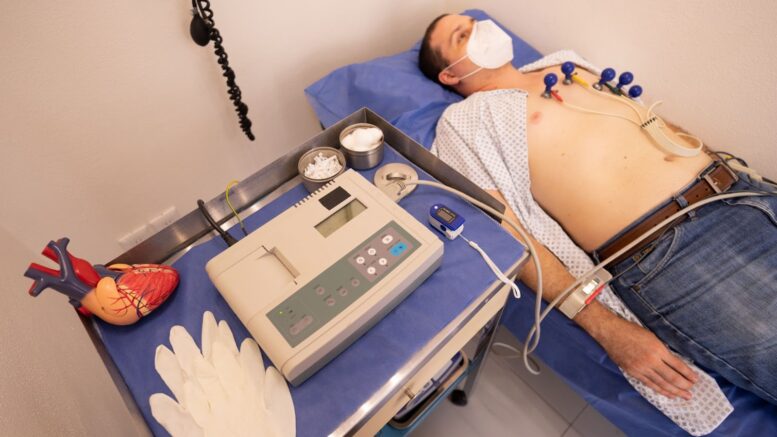Heart disease is no longer just an ailment of the elderly since it has recently become more prevalent among younger generations as well. This shift is due to the young generation’s propensity for bad lifestyle choices like smoking, inactivity, and poor eating habits. Therefore, it is essential to promote healthy practices and be aware of the risk factors involved in leading to heart disease. The most common risk factors for heart disease include high blood pressure, high cholesterol, and obesity, which cannot be taken lightly.
With the evolution of technology and research, we have seen some breakthrough treatments and new advances in the field of cardiology. Many hospitals have immense credibility for bringing such advantages to their cardiac patients over time. They have proven cases of successfully treating complex heart surgeries by utilising new advances in cardiology. Moreover, their dedication in the field of cardiology has earned them a well-deserved reputation as Cardiology Hospital.
Groundbreaking Treatments and Technologies for Better Heart Health
To make informed decisions about medical treatment, it is important to have a comprehensive understanding of heart health. A variety of diagnostic techniques are used to identify cardiac diseases, including stress tests, CT scans, MRIs, 2D-Echos, angiograms, and more. The team takes a thorough approach to treat heart-related issues and provides unparalleled care for some of the most complex medical conditions, including Congenital heart disease, Heart failure, Coronary artery disease, Hypertension, and others. Let’s check out the new technological advancements that have been implemented to revolutionise Cardiac Care.
- Transcatheter Aortic Valve Replacement (TAVR) is a less invasive method used to replace the aortic valve for patients who are unable to undergo open cardiac surgery.
- Left Atrial Appendage Closure (LAAC) is a non-invasive procedure that uses a device to seal up the left atrial appendage and can reduce the risk of stroke in people with atrial fibrillation.
- Percutaneous Coronary Intervention (PCI) is a technique used to unblock arteries and increase blood flow to the heart.
- Cardiovascular Magnetic Resonance Imaging (CMRI) is a non-invasive imaging method that uses magnetic fields to produce precise pictures of the heart and blood arteries.
- Bioresorbable Vascular Scaffolds (BVS) is a type of stent that the body gradually absorbs, reducing the chance of long-term issues caused by conventional metal stents.
- Wearable Cardioverter Defibrillators (WCD) are devices that monitor the heart and, if necessary, shock the patient to restore normal cardiac rhythm.
- Cardiac Stem Cell Therapy is a method that could potentially improve heart function and reduce the need for cardiac transplants by using stem cells to rebuild damaged heart tissue.
- Minimally Invasive Cardiac Surgery is a surgical approach that minimizes bodily harm while performing complex heart procedures using small incisions and specialized tools.
- Advanced Heart Failure Therapies, such as heart transplants and left ventricular assist devices (LVADs), can help people with severe heart failure live longer and with a better quality of life.
- Artificial Intelligence (AI) in Cardiology is improving diagnosis, treatment, and patient outcomes by analyzing massive quantities of cardiac data with machine learning algorithms.
- Holographic Procedural Navigation in the Cath Lab, which uses a specialized display screen, enables the presentation of holograms of real-time views of heart valves or the left atrial appendage (LAA). Large producers of angiography systems are evaluating the system for compatibility with their own technology.
- Cardiac Decellularization and Engineered Heart Tissue use cells and regenerative medicine in tissue engineering approaches to treat cardiac disease. However, to reconstruct new tissue, scaffolds, cells, and growth factors are also required.
Revolutionizing Cardiac Care: Patient-Centered Approach to Health

It is important to prioritize heart health as heart disease is the leading cause of death worldwide. By adopting healthy habits and seeking appropriate medical care when needed, individuals can improve their heart health and reduce the risk of developing heart-related conditions.
If you’re looking to improve your heart health, it may be beneficial to seek care from a reputable multispeciality hospital. Patients dealing with heart conditions get personalized cardiac treatment plans that are tailored considering their lifestyle and medical history. With a team of experienced cardiologists and access to state-of-the-art facilities, they offer the best possible care and treatment for severe to mild cases.
Moreover, these hospitals are committed to helping patients achieve optimal heart health and overall well-being. The treatment approach typically includes medication, lifestyle modifications, and regular check-ups to monitor progress. By following the recommended plan, patients can improve their quality of life and reduce the risk of heart-related complications.
Similarly, it is essential to follow the recommended treatment plan to improve the quality of life and reduce the risk of heart-related complications. This typically includes making lifestyle modifications such as quitting smoking, following a heart-healthy diet, and engaging in regular exercise. By making these changes and following the treatment plan, patients can significantly reduce their risk of heart disease and enjoy a better quality of life.
Conclusion
Ultimately, it is important to recognize the risk factors contributing to the rising conditions of heart disease. By taking proactive steps to prevent irreversible heart disease and prioritizing overall health, one can increase their chances of leading a long and fulfilling life. Fortunately, with the aid of innovative treatments and advancements in cardiology, like those provided by Global Hospitals, there is hope for individuals battling heart disease. However, it is important to note that early detection and treatment of heart disease can significantly improve outcomes and quality of life. Take the first step towards better heart health by contacting the most reliable hospitals today. Get effective treatments for living a healthy future.
